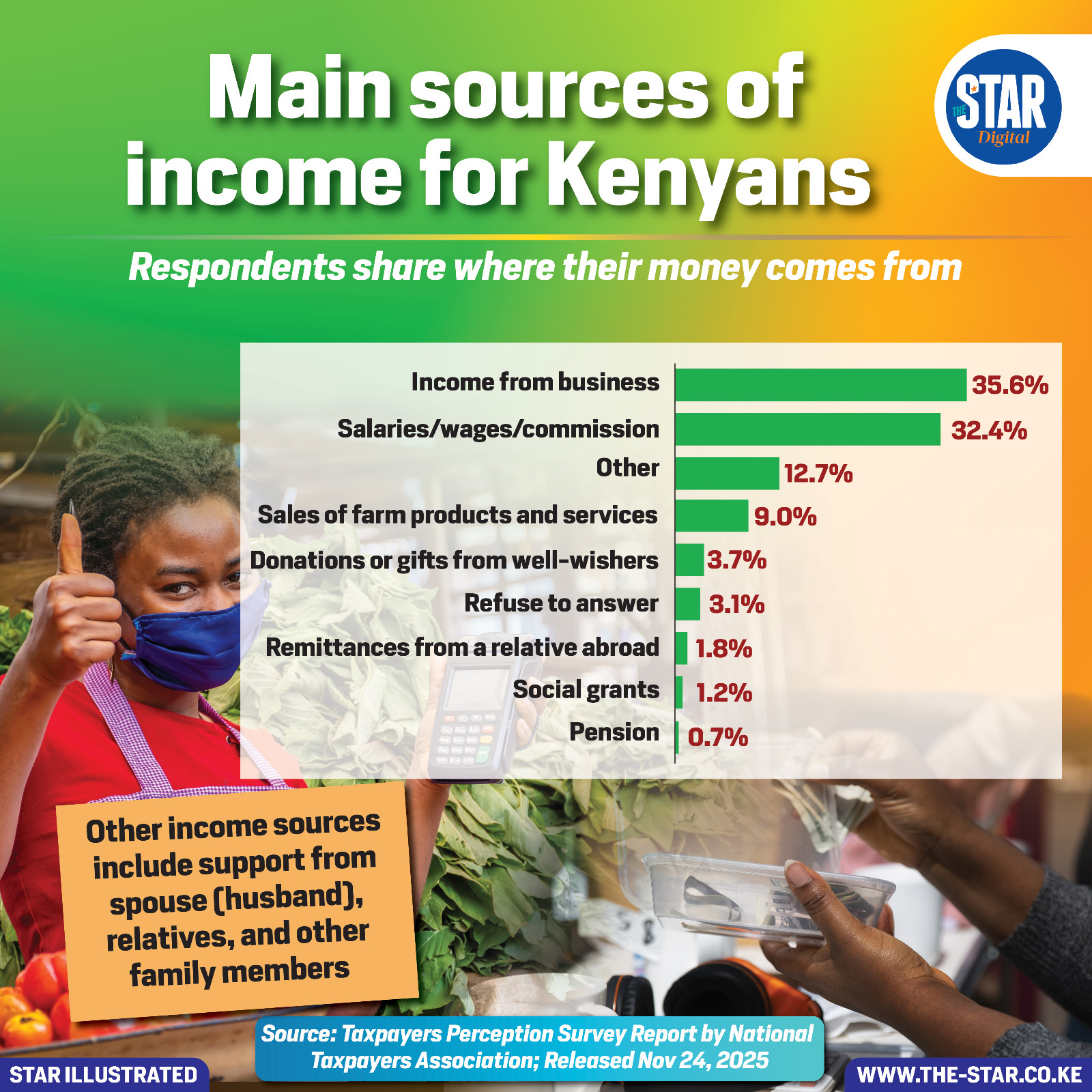

According to the latest Taxpayers Perception Survey by the National Taxpayers Association, a majority of Kenyans rely on business ventures and employment earnings as their main sources of livelihood.
The survey shows that 35.6 per cent of respondents earn their income from business, making entrepreneurship the largest income contributor. This reflects the country’s heavy reliance on the informal sector, where millions run small and micro enterprises to provide for their families.
Salaries, wages, and commissions follow closely at 32.4 per cent, demonstrating that formal employment still plays a significant role in sustaining households, especially in urban areas.
Income from the sale of farm products and services accounts for 9 per cent, underscoring the continued importance of agriculture, particularly in rural regions.
Donations or gifts from well-wishers (3.7 per cent), remittances from relatives abroad (1.8 per cent), social grants (1.2 per cent), and pensions (0.7 per cent) contribute smaller portions.
The data also shows that 3.1 per cent of respondents refused to answer—possibly an indicator of privacy concerns or distrust in surveys.
An additional note highlights that many households also depend on support from spouses, relatives, and extended family members, a common safety net in the Kenyan economy.
Overall, the findings paint a picture of a country where people rely on a mix of formal work, informal business, farming, and family support to get by—an important snapshot for understanding household resilience amid rising living costs.

















